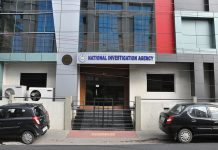This article is written by Chandana Pradeep, from the School of Law, University of Petroleum and Energy Studies, Dehradun. This article analyzes the importance of the Central Bureau of Investigation (CBI) and the investigation process of the CBI.
Table of Contents
Introduction
The Central Bureau of Investigation (CBI) is a premier investigating agency in India and it handles cases mainly related to corruption or bribery among others. The CBI acts as the “National Central Bureau” of Interpol in India. The Interpol Wing of the CBI coordinates requests for investigation-related activities originating from Indian law enforcement agencies and the member countries of the Interpol. Shri D.P. Kohli was the Founder-Director of CBI and he nurtured this organisation as a whole to develop it into what it is today. The current director of CBI is Mr. Rishi Kumar Shukla.
All about CBI
- The Central Bureau of Investigation was developed from the Special Police Establishment (SPE) in 1941 by the Government of India. There were a separate set of functions under this Act, which were to investigate cases concerning corruptions in situations where they arise in World War II.
- The CBI came into force on 1st April 1963 (Government of India’s Resolution No, 4/31/61- T/MHA (Home Ministry).
- In the beginning, the only ambit that the CBI had to cover were offences related to the Central Government concerning bribery and corruption and slowly, the ambit started to increase to include investigation in cases relating to the nationalisation of banks and its employees.
- Other offences which came under the CBI’s purview were investigations of murders, kidnapping, etc.
- The CBI is not a body of statutory authority and gets its powers from the Delhi Special Police Establishment Act (DSPE) and the body of CBI consists of a director, who is a member of the Indian Police Service and is assisted by a Special Director along with other members such as Joint Directors, Superintendent of police and Deputy Inspector General.
- The appointment of the CBI Director is based on the recommendations of a committee which is headed by the Central Vigilance Committee (CVC), whereas, before it was done as per the DSPE Act. In the year 2003, there was a recommendation given by the Supreme Court in the Vineet Narain case, where a committee had been formed with various members from the CVC called the Ministry of Personnel and Public Grievances to decide on the transparency of the procedure of appointing the CBI director.
Three wings of CBI
The Special Police Establishment (SPE) in the beginning had only two wings within their ambit, which were the General Offices Wing (GOW) and the Economic Offences Wing(EOW). But right now, even the Anti-corruption Division, Economic Offences Division, Special Crimes Division, Directorate of Prosecution, Administration Division, Policy & Coordination Division and Central Forensic Science Laboratory are included as well.
Anti-corruption Division
This division handles cases about corruption, bribery and frauds which are committed by the civil servants in all the departments and are under the Central Government.
Economic Offences Wing
The Economic Offences Wing was one of the initial divisions that were set up for the CBI to deal with cases and investigations where economic laws or fiscal laws were not followed. The Economic Offences Wing was set up in Delhi, Madras, Bombay and Calcutta initially. Some of the matters that this wing looks into are crimes associated with fake currency notes, cyber crimes, etc.
Special Crimes Division
This division investigates serious cases which relate to serious offences such as the ones stated in the Indian Penal Code or any other Acts which are requested to look into by the government or by the High Courts or Supreme Courts. Some of the matters that this division looks into are, the cases of a bomb blast, crimes of the underworld, etc.
Saradha Scam
This case of CBI v State of West Bengal was a case in which the special crimes division of the CBI got involved. This company was an umbrella form of company and within a few years, their scheme gained a lot of popularity and spread all across different states such as Odisha, Assam, etc. along with an increase in investors. For the investigation, the government of West Bengal appointed the Special Investigation Team and upon the decision of the Supreme Court, it was transferred to the CBI.
Cyber Crimes Investigation Cell (CCIC)
This wing of the Central Bureau of Investigation (CBI) solely focuses on the increasing cyber crimes and some of them are so severe that the CBI has to probe into these matters.
CBI Investigation process
Plan of action
This is the first step that needs to be taken and it involves three processes which are very technical and are as follows:
- Allegations reported in the FIR should be analysed.
- The allegations which are reported in the FIR have to be grouped into two which are secondary and main allegations.
- Points have to be drawn as to how the investigation has to proceed further.
The plan of action is a document that is flexible and once made, further changes can be done. After which, this plan of action has to be reviewed by the Superintendent of police to check if it is according to the plan of action which has been finalised or not. If the offence is serious then it is reviewed by the Director-General of Police and can make changes accordingly. It is made by the investigating officer with assistance from the Superintendent of police
Crime spot
This is the second step of the investigation process. This is the step where the investigating officer finds important information relating to the case and it becomes the base around which the whole case revolves.
Pieces of evidence often involve information such as the name of the victim, physical evidence, etc. This step is a crucial one for complex cases such as that of murder or rape, and therefore, is categorised into two substeps which are the following:
Plan
A plan of the area where the offence was committed has to be collected, as this helps the investigating officers to get a better understanding of the areas and its surroundings as well.
Physical proof of the scene
This is another step that is necessary where the scene of the offence and crime has to be recorded by taking pictures or videos for evidence and this can be sent to the witnesses in a write-only disk. This process helps in understanding the crime better as well as look for other clues about the case in further investigation.
Facts and circumstances to be found
The facts and circumstances surrounding the case have to be ascertained and the investigating officer has to make sure that he is well aware of all the facts of the case as well as how the offence took place. This step can only be initiated with the prior approval of the Superintendent of police.
The serious offences have to be dealt with judicially, where the investigating officer has to be aware of the facts and circumstances of the case as well as the rules and regulations which are involved in the case as well.
Arrest
This is the next step after which is the arrest of the person who committed the offence. For this purpose, the investigating officer has been designated with the same powers as that of a police officer which is accorded to them through the Code of Criminal Procedure,1973.
Evidence to be collected
The next step is for the evidence to be collected which is done by the Superintendent of police who also must make sure that the evidence which has been collected is not done by force or inducement and if so in such a manner the evidence collected shall not be admissible in the court of law and the officer shall be punished with severe consequences.
Any documents that have been taken in custody to help for further investigation has to be reviewed to check whether it would be fruitful for the investigation and if not, has to be returned.
Expert opinion
The final stage is for an expert opinion to be made as to whether the accused is guilty or not for the said offence which has to be done by the investigating officer after reviewing all the evidence which has been collected and if there is a reasonable doubt against the accused, the investigating officer must follow up with the further procedures such as making the accused appear before the court and further processes as per the Code of Criminal Procedure, 1973.
DSPE Act, 1946
The Delhi Special Police Establishment Act, 1946 was enacted because there was a dire need to control the offences which were done by the civil servants. This Act transferred the Special Police Establishment to that of the Home Department and covered a wide ambit that extended to all the departments of the government of India.
Section 4 of the DSPE Act governed the administration, which stated the following:
- The superintendence of the Delhi Special Police Establishment shall vest in the Central Government.
- The administration of the said police establishment shall vest in an officer appointed in this behalf by the Central Government who shall exercise, in respect of that policy establishment, such of the powers exercisable by an Inspector General of Police in respect of the police force in a State, as the Central Government may specify in this behalf.
The Lok Sabha passed a Bill so that a member of the Lok sabha could be added in CBI Chief Selection Committee as a member. This Bill was needed as the Chief of the Central Bureau of the investigation was retiring which meant that a new person had to be appointed and the Union government could only make the appointment on the recommendation of the committee which was headed by the Prime Minister. In this case, there was no opposition leader and the appointment could not be done along with the existing provisions.
Therefore, as a solution to this Section 4 was amended, and Section 4(a) was included, which stated that the largest opposition party could be a member for the selection process.
Conclusion
The Central Bureau of Investigation (CBI) is a premier investigating agency of the government of India and it was introduced so as to reduce the burden on other investigating bodies. The CBI is a key player and of utmost importance especially because of their investigation processes which are very accurate as all the officers and bodies of CBI are composed of people who are level players in their field.
References
- http://www.cbi.gov.in/contact.php
- https://www.firstpost.com/india/saradha-scam-cbi-file-supplementary-chargesheet-week-2103795.html
- https://www.drishtiias.com/important-institutions/drishti-specials-important-institutions-national-institutions/central-bureau-of-investigation-cbi
- https://legaldesire.com/read-to-know-history-and-establishment-of-cbi/
- https://blog.ipleaders.in/cbi-investigation/
- https://www.drishtiias.com/daily-updates/daily-news-analysis/c-b-i-and-consent-of-states#:~:text=general%20consent%20existed.-,Delhi%20Special%20Police%20Establishment%20Act,with%20the%20War%20%26%20Supply%20Deptt
- https://www.livelaw.in/top-stories/dspe-act-provision-requiring-states-consent-for-cbi-investigation-is-in-tune-with-federal-character-of-constitution-165991
LawSikho has created a telegram group for exchanging legal knowledge, referrals and various opportunities. You can click on this link and join:
 Serato DJ Crack 2025Serato DJ PRO Crack
Serato DJ Crack 2025Serato DJ PRO Crack











 Allow notifications
Allow notifications


